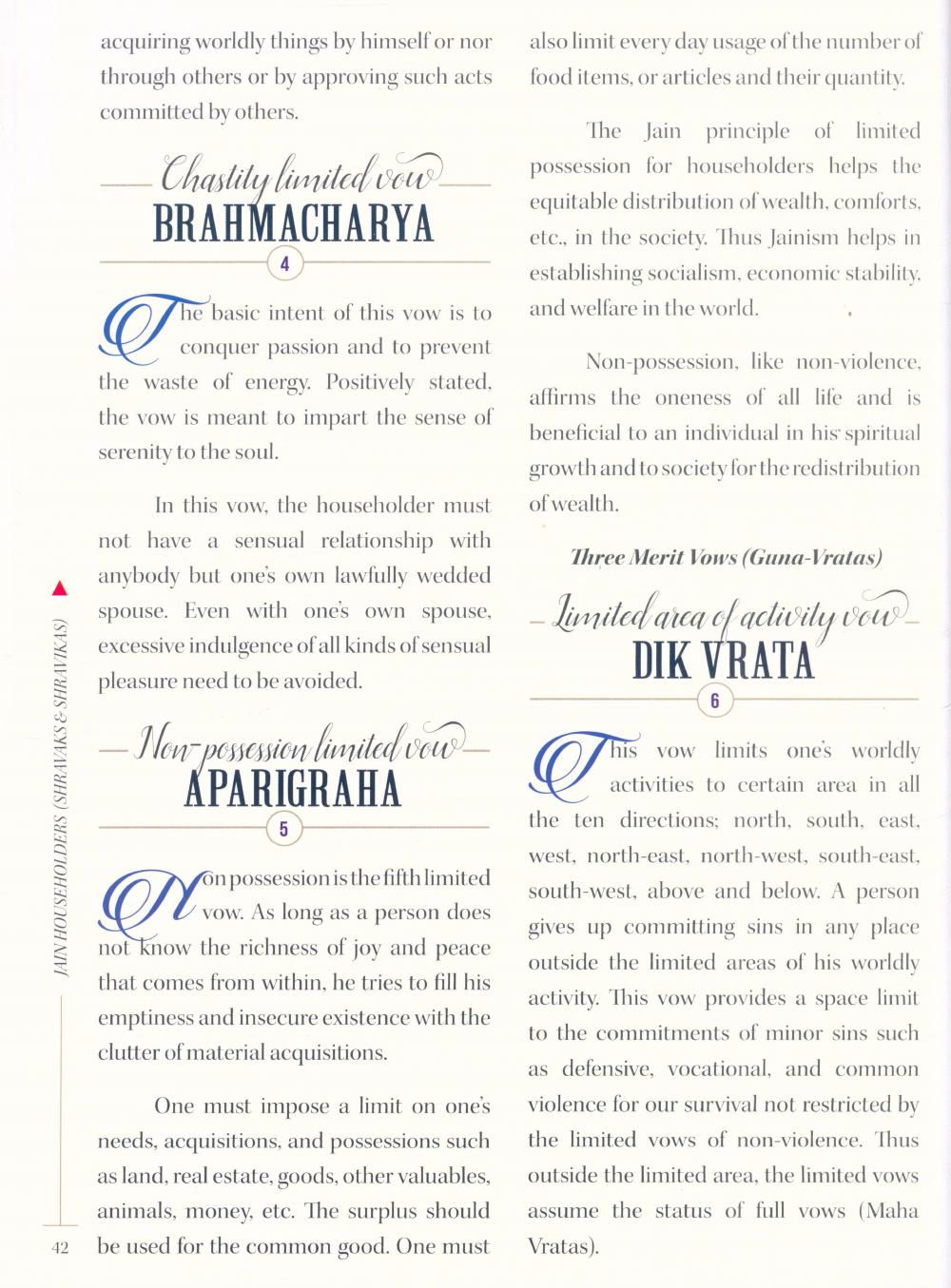________________
acquiring worldly things by himself or nor through others or by approving such acts committed by others.
also limit every day usage of the number of food items, or articles and their quantity.
Chastily limited vow BRAHMACHARYA
The Jain principle of limited possession for householders helps the equitable distribution of wealth, comforts, etc., in the society. Thus Jainism helps in establishing socialism, economic stability, and welfare in the world.
he basic intent of this vow is to
conquer passion and to prevent the waste of energy. Positively stated, the vow is meant to impart the sense of serenity to the soul.
Non-possession, like non-violence, affirms the oneness of all life and is beneficial to an individual in his spiritual growth and to society for the redistribution of wealth.
Three Merit Vows (Guna-Vratas)
In this vow, the householder must not have a sensual relationship with anybody but one's own lawfully wedded spouse. Even with one's own spouse, excessive indulgence of all kinds of sensual pleasure need to be avoided.
- Timiled area of activity vow_
DIK VRATA
JAIN HOUSEHOLDERS (SHRAVAKS & SHRAVIKAS)
- I low-possession limited vow
APARIGRAHA
ON COW
on possession is the fifth limited
I vow. As long as a person does not know the richness of joy and peace that comes from within, he tries to fill his emptiness and insecure existence with the clutter of material acquisitions.
his vow limits one's worldly
activities to certain area in all the ten directions; north, south, east, west, north-east, north-west, south-east, south-west, above and below. A person gives up committing sins in any place outside the limited areas of his worldly activity. This vow provides a space limit to the commitments of minor sins such as defensive, vocational, and common violence for our survival not restricted by the limited vows of non-violence. Thus outside the limited area, the limited vows assume the status of full vows (Maha Vratas).
One must impose a limit on one's needs, acquisitions, and possessions such as land, real estate, goods, other valuables,
animals, money, etc. The surplus should 42 be used for the common good. One must




